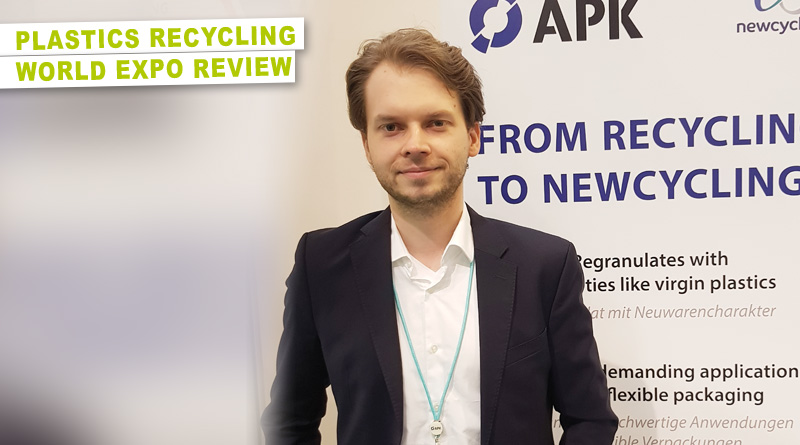Solvent-based recycling
A new plastics recycling technology
Interview with Florian Riedl, Director Business Development at APK AG, Merseburg, Germany
PETplanet: Dear Mr Riedl, may I ask you to briefly introduce you and your company? What were your reasons for looking at an alternative to mechanical and so-called “chemical” recycling?
Florian Riedl: APK is a plastic recycler based in Germany. The focus of APK is its Newcycling technology, a solvent-based recycling process that enables to generate from multilayer plastic packaging and mix plastic waste fractions again pure sorted polymers. Myself, I’m responsible for the Business Development within APK and focus on strategic cooperation partners.
The demand from brand owners and packaging converters in high-quality recyclates that can replace virgin plastics is already today higher than the market availability of such recyclates. And this trend will accelerate the coming years. From our perspective, solvent-based recycling can close this gap and provide recyclates that can substitute virgin plastics and at the same time reduce the carbon foot print of plastics packaging.
PETplanet: Would you please be so kind and explain the technology of solvent-based recycling? What are the differences and advantages to other plastics recycling processes?
Florian Riedl: Mechanical recycling comes in most cases quickly to a limit in terms of mixed plastic waste streams. For example if the waste contains multi-material packaging with a mix of different polymers, e.g. PE and PET, then the generated recyclates consist also of a mix of these polymers what limits the range of suitable end applications.
Chemical recycling processes enable pure polymers also from mixed and complex waste streams. But most of the chemical recycling technologies include two highly energy intensive steps: First they break down the polymers chains to monomers or other chemical base units, and afterwards synthesise again the monomers to polymers. Theses two energy consuming steps are not needed by solvent-based recycling, as solvent-based recycling does not break down the polymer chain. It is selectively dissolving polymers and generates this way pure sorted plastics.
PETplanet: What is the state of development of this technology at APK? Is it already ready for the market? For which types of plastics is it suitable?
Florian Riedl: APK has its first Newcycling plant with a capacity of 8,000 t/a in operation since June 2019. The technology is fully commercialised and recyclates from the Newcycling process are sold to customers for already over two years. The technology is suitable for a huge range of polymers and polymer combinations, such as LDPE, HDPE, PP or PA.
PETplanet: What are the future plans for Newcycling?
Florian Riedl: In the next step we make the technology ready for the usage in post-consumer household waste. We are already far ahead in these developments but cannot share details at this stage.
PETplanet: Thank you so much for this brief overview.
APK was founded in 2008 with the vision of producing pure polymers with properties close to virgin plastics from plastic waste. After many years of research, development and testing of various waste flows, the vision has become a reality with an industrial scale plant. The plant in Merseburg has around 57,000 m² for R&D, production and administration. For conventional recycling process the input capacity is 12,000 t/a, for the Newcycling process the plant has a capacity of 8,000 t/a. 100 employees work for the success of APK.

